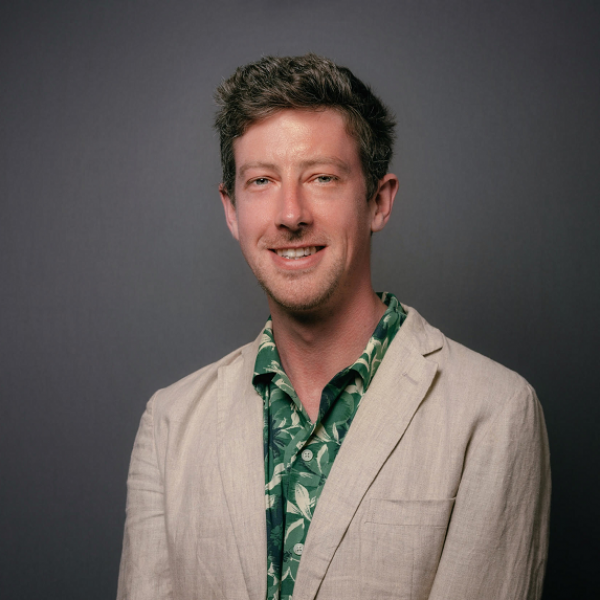Dr Jacob Macdonald
School of Geography and Planning
Lecturer in GIS and Spatial Analysis


Full contact details
School of Geography and Planning
C04-A
Geography and Planning Building
Winter Street
Sheffield
S3 7ND
- Profile
-
My background spans multiple disciplines across a number of international settings. I completed my undergraduate degree in Statistics and Economics from Memorial University of Newfoundland and Labrador (2012), working jointly two years with the federal government in Ottawa to complete a co-op degree program.
I then moved to Lisbon, Portugal, for a Masters of Research in Economics with the Nova School of Business and Economics (2015). During this time abroad traveling for conferences, field trips and leisure, my experiences in different urban areas across the world sparked an ongoing interest for long-term research and study in this field. I continued on to complete a PhD in Economics and Finance (2020) with a focus in urban and environmental economics, spending a semester as a visiting research scholar in California at UC Irvine (2016).
My research includes a particular emphasis on leveraging spatial data and the quantitative geography toolkit. I moved to Liverpool in 2019 to work as geographic data science research fellow with the University of Liverpool’s Geographic Data Science Lab and Consumer Data Research Centre, combining both academic work and professional data stakeholder interactions. Following this I moved to my current appointment as a Lecturer in GIS and Spatial Analysis with the University of Sheffield Department of Urban Studies and Planning (2021).
- Research interests
-
My research focuses broadly around the application and methods of urban and environmental economics and data science. I am particularly interested in the interplay and spillovers of natural (environmental) urban amenities, the built environment and neighbourhood dynamics. This work emphasizes quantitative methods and leveraging big, novel, and geographic data.
I have a background in spatial statistics, econometrics, data visualization, machine learning and capturing measures of the urban environment through remote sensing and secondary administrative data sources. I’m a broad champion of open data/ software, open (and accessible) science communication, and making use of increasingly available and new sources of data.
My current work looks to better understand how the built urban environment and amenities in a local area can influence broader economic, socio-demographic or environmental processes. This falls generally along the following streams.
1) Measuring and Valuing Urban Amenities and Spillovers:
This area looks at how to best capture, measure and incorporate features of the urban environment and amenities into spatial statistics and models. I am particularly interested in using quasi-experimental policy evaluation for valuing the impact of urban green and blue amenities and their spillover effects on local hazards like flooding or pollution risks.
2) Spatial and Temporal Patterns of Local Housing, Employment and Retail:
Using big, geographic data sources can help to better understand detailed variations and similarities in the overall economic vitality and homogeneity of markets across urban areas. I’ve worked extensively with geographic housing, employment and retail data to better understand spatial patterns in local economic and consumer behaviour, identifying, mapping and delineating small area neighbourhoods and urban zones.
3) Patterns of Human Activity and Interaction in the Urban Area:
As new forms of granular location data over time capture high detailed patterns of mobility and urban movement, a wide range of work can explore how the local population interact with the built and urban environment. Mobility patterns and spatio-temporal urban data not only helps inform on the relative attractiveness of certain spaces (e.g. parks and open spaces), but also can help in better understanding how our behaviour influences dynamics like congestion or pollution.
- Publications
-
Journal articles
- Local Data Spaces: Leveraging trusted research environments for secure location-based policy research in the age of coronavirus disease-2019 – CORRIGENDUM. Data & Policy, 5.


- Local data spaces: leveraging trusted research environments for secure location-based policy research in the age of coronavirus disease-2019. Data & Policy, 5. View this article in WRRO


- Integrating the who, what, and where of U.S. retail center geographies. Annals of the American Association of Geographers, 113(2), 488-510. View this article in WRRO


- An open source delineation and hierarchical classification of UK retail agglomerations. Scientific Data, 9(1).


- Decomposing the temporal signature of nitrogen dioxide declines during the COVID-19 pandemic in UK urban areas. Applied Spatial Analysis and Policy, 15, 1167-1191.


- Surface vs. groundwater: The effect of forest cover on the costs of drinking water. Water Resources and Economics, 28, 100123-100123.


- Measurement and valuation of urban greenness: Remote sensing and hedonic applications to Lisbon, Portugal. Regional Science and Urban Economics, 72, 156-180.


- The effects of cultural heritage on residential property values: Evidence from Lisbon, Portugal. Regional Science and Urban Economics, 70, 35-56.


- Identifying employment subcenters: the method of exponentially declining cutoffs. Land, 6(1).


Preprints
- Local Data Spaces: Leveraging trusted research environments for secure location-based policy research in the age of coronavirus disease-2019 – CORRIGENDUM. Data & Policy, 5.
- Teaching activities
-
I have a keen interest in making frontier research topics and science methodologies accessible and openly available where possible. This includes using accessible teaching resources and methods for a diversity of student cohorts.
My teaching activities focus on modules in GIS, spatial analysis and research methodologies. In addition to supervision duties for research dissertations across the different programs, I have been a member of the teaching team for the following modules at the undergraduate and masters level:
- TRP 215: Researching the City (European Field Trip) (Module Leader)
- TRP 480: Quantitative Analysis (Module Leader)
- TRP 479: Spatial Data Science for Social Scientists
- TRP 621: Advanced GIS | TRP 622: The GIS Project
